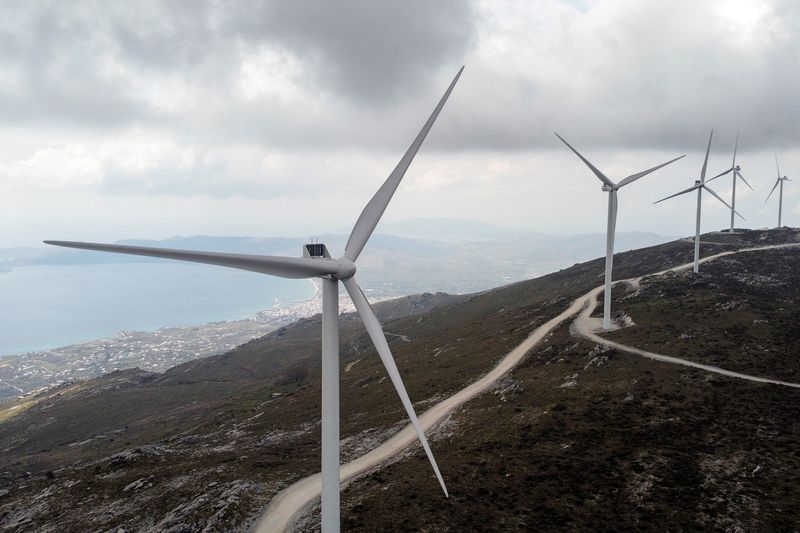FRANKFURT (Reuters) - Speeding up the transition to a greener economy would be cheaper than delaying it for euro zone companies, households and the banks that serve them, a European Central Bank study showed on Wednesday.
The ECB's second "climate stress test" used data from 2.9 million companies and 600 banks in the euro area, with a total exposure of nearly 3 trillion euros ($3.22 trillion), making it one of the most comprehensive studies on the economic costs of achieving the emission-reduction goals set under the Paris agreement.
It found that bringing forward green policies and investment to phase out fossil fuels and save energy would ultimately result in fewer defaults by households and companies and, as a result, smaller losses for banks between now and 2030.
Under this "accelerated transition" scenario euro zone firms would make investments worth 2 trillion euros by 2025 to lower their emissions, compared to 500 billion euros under scenarios in which the transition is delayed.
Energy costs, meanwhile, would rise by 10% for households by 2025 before stabilising.
Despite these higher initial costs, the ECB said lower energy expenses and financial risk later on meant this path would see banks' annual losses on loans peak at 13 billion in 2026, before declining to 6.6 billion euros by 2030.
By contrast, a scenario in which the bulk of the costs of the transition is delayed to 2026 and beyond would see annual losses climb steadily to 21 billion euros in 2029, the study found.
On a cumulated basis, banks would suffer losses equal to 0.7% of their loans by 2030 under the accelerated transition, compared to 0.9% under the "late push".
Such losses would be concentrated among a few, large banks, with 2% of lenders accounting for 75% of total expected losses by 2030 in the "late push".
This is because large banks tend to make more unsecured loans, which are not backed by collateral and therefore result in a larger loss for the bank when they go unpaid.

Among companies, the increase in defaults would be highest in the emission-intensive mining and manufacturing sectors as well as among electricity companies.
($1 = 0.9314 euros)